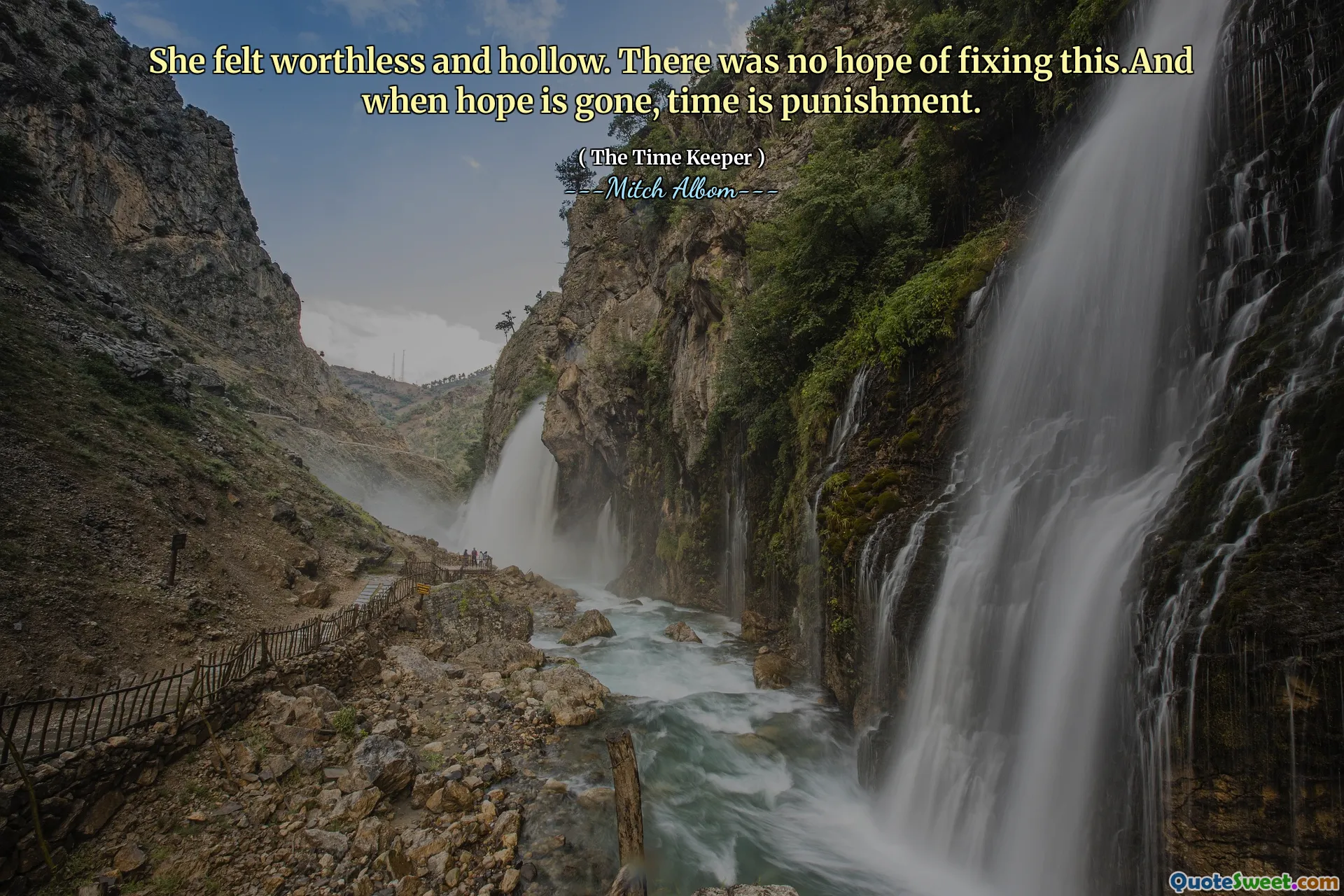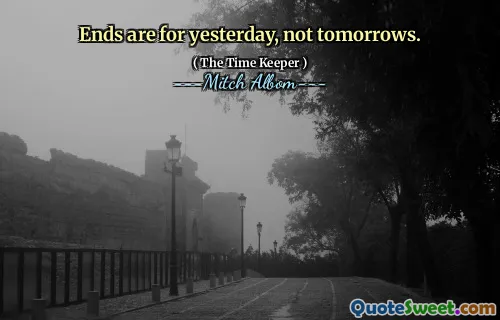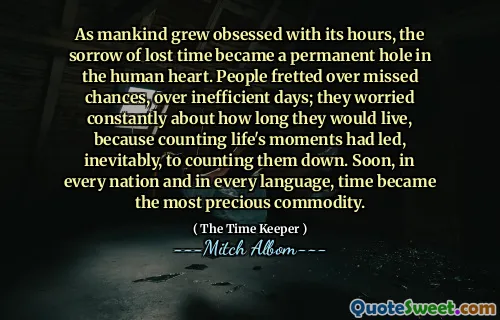
She felt worthless and hollow. There was no hope of fixing this.And when hope is gone, time is punishment.
In Mitch Albom's "The Time Keeper," the protagonist experiences profound feelings of worthlessness and emptiness. This emotional turmoil leads her to believe that there is no possibility of change or redemption in her life. The weight of these feelings becomes unbearable, as she struggles with the notion that time, rather than being a healer, serves as a constant reminder of her suffering.
The sentiment that "when hope is gone, time is punishment" emphasizes how despair can make each moment feel like a burden. Instead of offering a chance for healing or growth, time transforms into an oppressive force, deepening her sense of despair. This powerful reflection encapsulates the impact of hopelessness on one's perception of life and the relentless passage of time.








